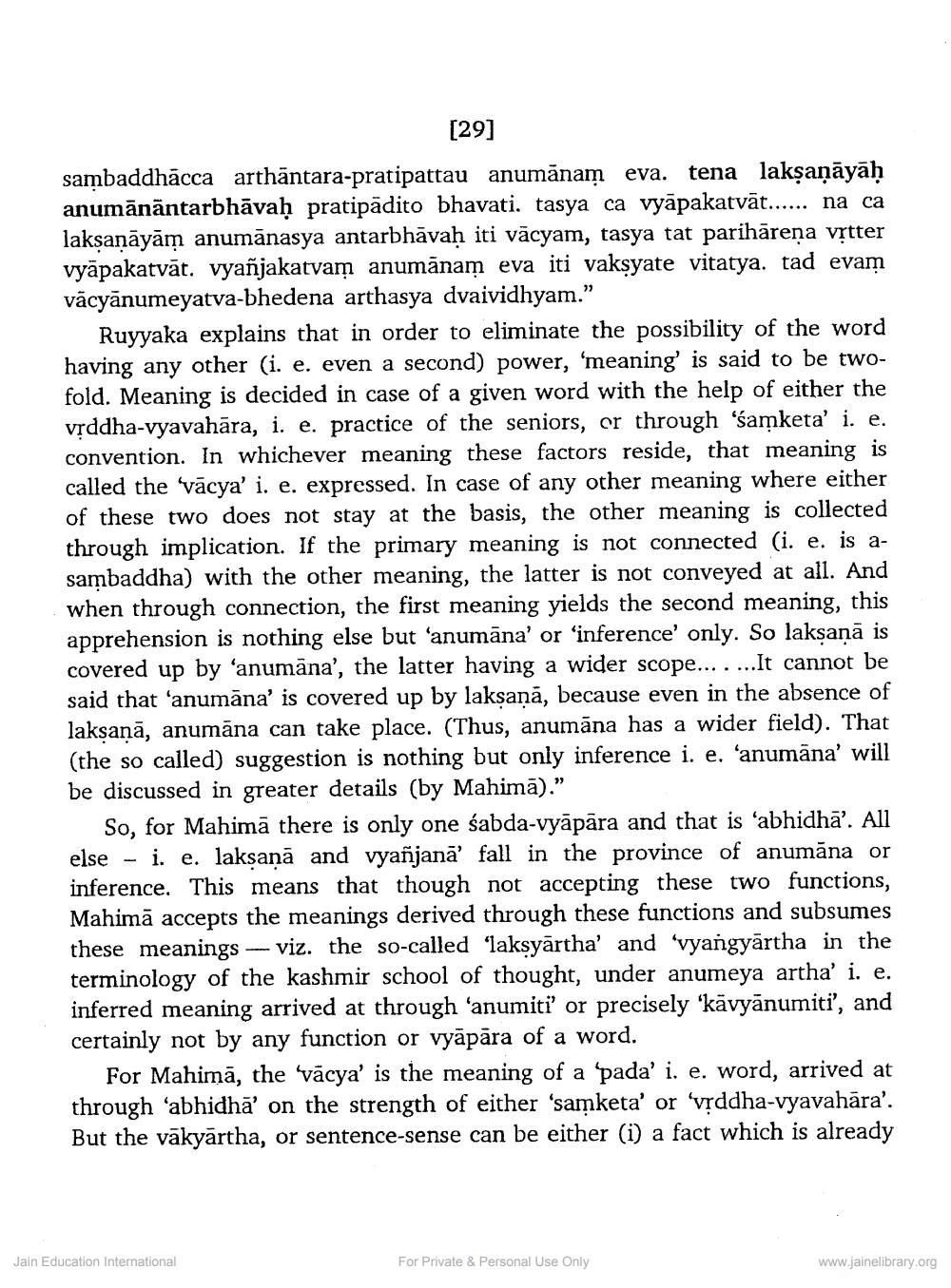________________
[29]
sambaddhācca arthāntara-pratipattau anumānam eva. tena lakṣaṇāyāḥ anumānāntarbhāvaḥ pratipädito bhavati. tasya ca vyāpakatvāt...... na ca laksanāyām anumānasya antarbhāvaḥ iti vācyam, tasya tat parihāreņa vịtter vyäpakatvāt. vyañjakatvam anumānam eva iti vaksyate vitatya. ta vācyānumeyatva-bhedena arthasya dvaividhyam."
Ruyyaka explains that in order to eliminate the possibility of the word having any other (i. e. even a second) power, 'meaning' is said to be twofold. Meaning is decided in case of a given word with the help of either the vrddha-vyavahāra, i. e. practice of the seniors, or through 'samketa' i. e. convention. In whichever meaning these factors reside, that meaning is called the 'vācya' i. e. expressed. In case of any other meaning where either of these two does not stay at the basis, the other meaning is collected through implication. If the primary meaning is not connected (i. e. is asambaddha) with the other meaning, the latter is not conveyed at all. And when through connection, the first meaning yields the second meaning, this apprehension is nothing else but ‘anumāna' or 'inference only. So laksaņā is covered up by 'anumāna', the latter having a wider scope... . ...It cannot be said that ‘anumāna' is covered up by laksanā, because even in the absence of laksanā, anumāna can take place. (Thus, anumāna has a wider field). That (the so called) suggestion is nothing but only inference i. e. 'anumāna' will be discussed in greater details (by Mahimā).”
So, for Mahimā there is only one śabda-vyāpāra and that is ‘abhidhā'. All else - i. e. laksana and vyañjana' fall in the province of anumāna or inference. This means that though not accepting these two functions, Mahimā accepts the meanings derived through these functions and subsumes these meanings - viz. the so-called 'laksyārtha' and 'vyangyārtha in the terminology of the kashmir school of thought, under anumeya artha' i. e. inferred meaning arrived at through 'anumiti' or precisely 'kävyānumiti', and certainly not by any function or vyāpāra of a word.
For Mahimā, the vācya' is the meaning of a 'pada' i. e. word, arrived at through 'abhidhā' on the strength of either 'samketa' or 'věddha-vyavahāra'. But the vākyārtha, or sentence-sense can be either (i) a fact which is already
Jain Education International
For Private & Personal Use Only
www.jainelibrary.org




